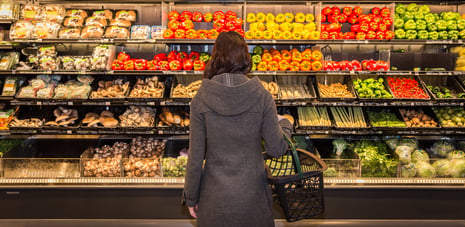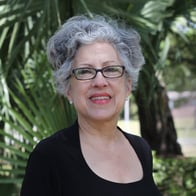Forty-five minutes into exercise class and the instructor boomed through her headset. “If you’re running out of steam about now, you have to ask yourself - Have I fueled properly for this class?” How did she know? Did I look that rough? She asked us to consider what we had eaten (and drunk) since last night’s supper. Had our selections set us up to power through class with energy, to finish strong?
That one question set me on a new path. Though I had long-since adhered to a plant-based, “healthy” diet, I hadn’t really treated food choices as fuel choices. Like many people, I looked at foods as “good” or “bad,” and simply aimed to make way more good choices than bad ones. But is “good vs. bad” an effective strategy for approaching our health goals?

Maybe not. Because good vs. bad can be awfully subjective (Whole grains - friend or foe?), current wisdom is veering towards considering foods as “nutritious” or “not so nutritious” instead, using fact-based information. For example, we know that trans fats contribute to a number of poor health outcomes such as heart disease, stroke, and Type 2 diabetes, so they easily fall into the “not nutritious” camp. Because of the preponderance of evidence, the World Health Organization has called for the elimination of trans fats in foods by 2023.
“I can’t eat... / I don’t eat... / I shouldn’t eat...” Does relegating a food or beverage to the “bad” category help you relax and forget about it, or do those items magically morph into forbidden fruit? Only you know the answer to that. But when we decide that no foods are off limits, then suddenly the “Wet Paint - Do Not Touch” sign falls away and there is no guilt over eating what you had previously defined as “bad.” Ironically, this may enhance your sense of self-control by taking the tug-of-war out of your relationship with food. Imagine how delightful it would feel to approach each mealtime with a sense of calm and guilt-free enjoyment.
Download Your Guide to Making Better Health Decisions
If you’re seriously ready to stop your own internal food fight, check out Michael Pollan’s book “Food Rules - An Eater’s Manual.” (And for even more detail, his “In Defense of Food.”) They are both quick, easy, yet enlightening reads that can help you actually prefer to make the more nutritious choices, day in & day out. Wave bye-bye to the food friction that’s been living inside your head.
What category we assign anything to will affect how we think about it - it will shape our self-talk. Exhibit A: that “I shouldn’t have eaten that!” voice in your head that belittles you when you’ve eaten something you’ve told yourself you shouldn’t have, because you’ve defined it as “bad.” It’s not such a big leap, then, for our Inner Critics to convince us we’re “bad” at sticking to a meal plan, “bad” at living a healthy lifestyle. Who wants to feel guilty over what they ate or drank, and go into the next meal feeling that much less successful at self-control?
Even apps such as myfitnesspal believe it's time to stop judging foods as good or bad.
My brother, an expert practitioner of Tae Kwon Do, has a sky blue t-shirt with an image of his sensei - his master instructor - performing some maneuver that most humans cannot do. Beneath the photo is one word - Focus. That t-shirt was another turning point for me when he first wore it years ago. Suddenly I realized that I don’t need willpower to manage my health goals - I simply need focus, focus that is based on solid, evidence-based info from reputable sources. What a relief. The good food / bad food fight was over.
 Donna LaBrasca, M. Ed., CDE
Donna LaBrasca, M. Ed., CDE
Quality Assurance and Training Coordinator
Donna LaBrasca is the Quality Assurance and Training Coordinator at Equiscript. She spent her undergraduate years studying Psychology at Clemson University, then received a Master's degree in Counseling from The Citadel. Donna has been a Certified Diabetes Educator since 1989 and enjoys keeping up to date with new research. Reading, cooking, and BBC dramas are hobbies of Donna's. She has also been a Master Gardener almost three decades and even xeriscaped her yard!


